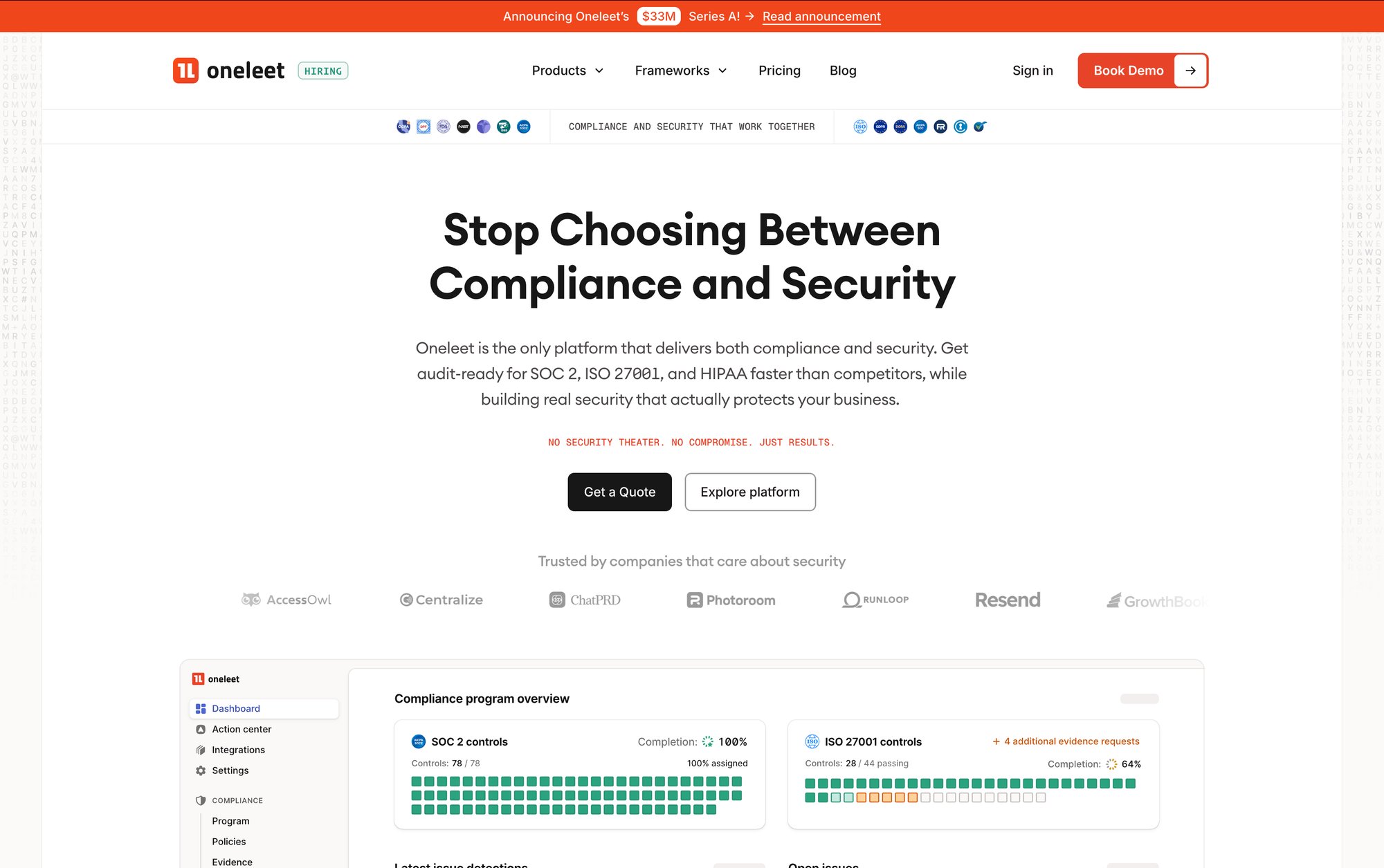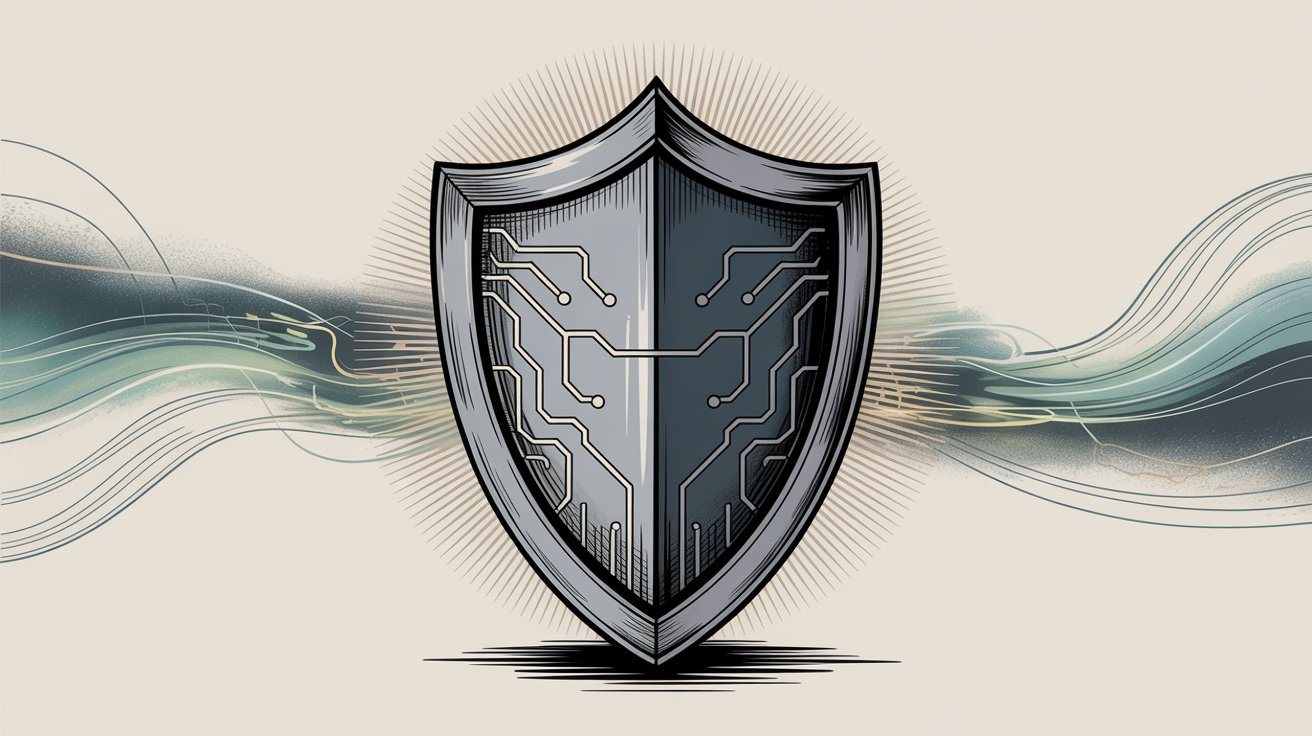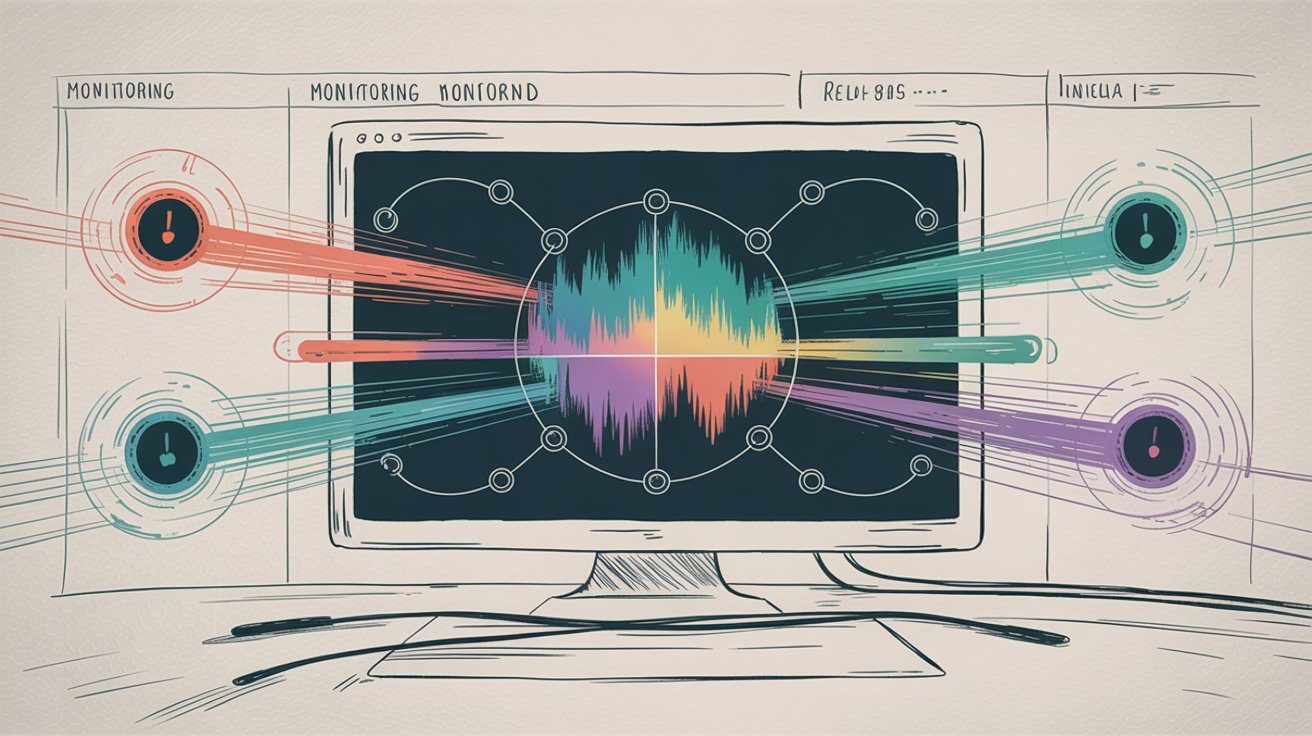If you're researching OneLeet vs Delve, you're likely at a critical decision point. You need SOC 2, HIPAA, or ISO 27001 certification, and you need it soon. Maybe there's an enterprise deal on the line. Maybe investors are asking for it. Maybe you just want to close compliance and get back to building your product.
Understanding these compliance frameworks is critical for choosing the right platform. SOC 2 is an auditing standard developed by the American Institute of CPAs that evaluates how organizations manage customer data. HIPAA is the federal law that requires protection of sensitive patient health information. And ISO 27001 is an international standard for information security management systems.
Both OneLeet and Delve promise to make compliance faster and less painful than traditional approaches. But they take very different paths to get you there, and those differences matter for your timeline, budget, and long-term security posture.
Here's what we'll cover in this comparison:
→ How OneLeet and Delve actually work (and where they differ)
→ Real timelines, pricing, and customer experiences
→ Which platform fits your specific needs and goals
→ How we approach compliance differently at Comp AI
Quick Take: OneLeet focuses on lasting security with expert-led guidance and built-in penetration testing. Delve focuses on speed and AI automation to get you audit-ready in days. Your choice depends on whether you value a thorough security-first process or a lightning-fast, AI-driven approach.
How Do OneLeet and Delve Work? (Platform Overview)
OneLeet: Security-First Compliance

OneLeet (YC S22) was built by ethical hackers frustrated with "compliance theater." You know the pattern: companies pass audits but remain vulnerable because they focused on checkboxes instead of actual security.
Their solution bundles compliance automation with real security services.
What's included:
→ SOC 2, ISO 27001, HIPAA, PCI-DSS, GDPR support
→ Automated evidence collection (basic integrations)
→ Expert-led penetration testing
→ Code security scanning
→ On-demand vCISO guidance
→ Real-time device and cloud monitoring
The pitch is straightforward: Don't just pass the audit. Actually become more secure in the process. OneLeet serves 750+ customers, including two-thirds of Y Combinator startups. They raised a $33M Series A in late 2025.
Delve: AI-Powered Speed
Delve (YC W23) came from two MIT engineers who experienced painful HIPAA audits and decided to fix the process with AI agents. The tagline says it all: "Compliance in days, not months."
What's included:
→ Autonomous AI agents for evidence collection
→ Screenshot automation across systems
→ Cloud and code security scanning
→ AI-powered questionnaire responses
→ Continuous compliance monitoring
→ 1:1 Slack support with compliance experts
Delve's AI agents connect to your systems and handle the busywork automatically. They pull configs, take screenshots, monitor for drift, and keep everything documented. The platform serves 500+ customers and raised a $32M Series A at a $300M valuation in mid-2025.
The fundamental difference: OneLeet provides moderate automation plus heavy expert involvement. Delve provides deep automation plus lighter human guidance. Think of it as co-pilot versus self-driving (though both still need you in the driver's seat for implementation).
Which Compliance Frameworks Do OneLeet and Delve Support?
Both platforms cover the compliance frameworks startups typically need, but OneLeet is more transparent about exactly what's supported.
OneLeet Framework Coverage
OneLeet lists everything upfront:
- SOC 2 (Type I and II)
- ISO 27001
- HIPAA
- PCI-DSS
- GDPR
- CIS Critical Security
- NIST 800-171
- EU DORA
- Custom framework mapping
If you need multiple certifications or something less common (like NIST 800-171), OneLeet explicitly supports it with built-in content and control mapping.
Delve Framework Coverage
Delve supports all the standard frameworks (SOC 2, HIPAA, GDPR, ISO 27001, PCI) plus custom compliance requirements. They don't publish a complete list, but their AI-driven control mapping suggests flexibility for various standards.
Being newer, Delve initially had some gaps in framework coverage. They're catching up quickly, but you'll want to confirm they support your specific needs before committing.
Bottom line: OneLeet wins on transparency. You know exactly what frameworks they handle. Delve is likely flexible enough for most needs but requires discussion to confirm.
OneLeet vs Delve AI Automation: Which Platform is More Automated?
This is where these platforms diverge significantly. OneLeet automates basics while keeping humans in the loop. Delve pushes AI automation to the limit.
OneLeet's Human-First Automation
OneLeet automates what it can:
- Integrations pull evidence automatically (user lists, config screenshots)
- Real-time security scans on infrastructure
- Basic evidence collection for known requirements
But automation is a means, not the end. OneLeet doesn't market itself as an AI platform. Instead, they pair moderate automation with hands-on expertise. When something requires judgment or customization, a human expert handles it.
This approach means more guidance and education (great for first-timers) but potentially more time investment from your team.
Delve's AI-Everything Approach
Delve built autonomous AI agents that act like virtual compliance analysts.
What the AI does:
- Dynamically scans AWS, GitHub, and other systems in real-time
- Detects unencrypted S3 buckets and suggests fixes
- Auto-fills security questionnaires
- Monitors infrastructure daily for new issues
- Updates evidence continuously as your environment changes
The AI aims to automate evidence collection. It doesn't just follow static checklists. It adapts based on what it finds in your systems.
One important caveat: The AI finds issues and generates documentation. You still need to fix the actual problems. If Delve flags an unencrypted database, you still need to encrypt it. The AI doesn't handle security controls for you.
Verdict: Delve offers deeper, more intelligent automation. OneLeet offers more human coaching. If you want hands-off evidence collection, Delve wins. If you want expertise guiding every step, OneLeet wins.

How Many Integrations Do OneLeet and Delve Offer?
Missing integrations mean manual uploads. Here's how they compare:
| Feature | OneLeet | Delve |
|---|---|---|
| Core Integrations | ~20 (AWS, Azure, GCP, GitHub, Okta, etc.) | 100+ systems |
| Custom Integrations | Not supported | API-based custom checks |
| Evidence Collection | Auto for supported systems, manual for others | Auto-screenshots even for systems without APIs |
| Flexibility | Good for common stacks | Excellent for complex environments |
OneLeet covers the basics most startups need. But they don't support custom integrations via API. If you use a home-grown tool or less common SaaS app, you'll handle evidence manually.
Delve's 100+ integrations cover more ground, and they support custom checks. Their browser-based agents can even take screenshots of web portals to collect evidence from systems without formal APIs.
Result: Delve leaves fewer gaps in evidence collection. OneLeet works well for standard tech stacks but may require more manual work for edge cases.

OneLeet vs Delve Security: Which Provides Better Risk Management?
Both help you pass audits, but they handle security risk management very differently.
OneLeet's Tactical Security Approach
OneLeet goes beyond compliance forms by including actual security tools and services.
Built-in security features:
- Expert-led penetration testing (OSCE-certified professionals)
- Code security scanner
- Attack surface monitoring
- Device compliance monitoring (laptop encryption, etc.)
- Access to vCISO guidance
When OneLeet's pentest finds vulnerabilities, they help you fix them and turn those fixes into audit evidence. You're not just checking boxes: you're actually improving security.
This is valuable because penetration testing alone can cost several thousand dollars. OneLeet bundles them into the platform. According to NIST's guidelines on penetration testing, these assessments are critical for identifying vulnerabilities before attackers exploit them.
Delve's Risk Intelligence Approach
Delve focuses on continuous risk monitoring through automation.
Risk features:
- Dynamic risk register with scoring
- Automated risk mapping to controls
- Remediation workflows with tracking
- External vendor research
- Policy updates based on emerging threats
If Delve's AI finds an open port or missing training, it logs the risk, assigns severity, and suggests mitigation. You get a structured GRC approach for tracking issues from detection to resolution.
What Delve doesn't provide: Human-led security testing. Their automated code scans are useful, but they don't replace a manual pentest. You'd need to engage separate security consultants for that depth.
Trade-off: OneLeet emphasizes tactical security improvements (pentests, vulnerability fixes). Delve emphasizes systematic risk monitoring and management. For lean startups, OneLeet feels like getting a part-time security team. Delve feels like getting a smart system that ensures nothing falls through the cracks.

How Do OneLeet and Delve Handle Continuous Compliance Monitoring?
Both stress that compliance isn't one-time. You need ongoing monitoring to avoid drift after your audit.
OneLeet's Real-Time Monitoring
OneLeet provides real-time monitoring through its integrations and agent. If it's connected to your AWS, it continuously checks those settings. It monitors devices for policy compliance (encryption enabled, OS patched, etc.).
The monitoring is straightforward: If an integrated check fails, OneLeet alerts you or marks the control as non-compliant. It keeps evidence updated continuously within the boundaries of its integration coverage.
Delve's Always-On Intelligence
Delve's AI agents monitor 24/7 across your entire connected environment. The platform detects drift in real-time and uses predictive capabilities to flag issues before they become failures.
For example: If someone disables MFA on an account, Delve catches it immediately. If a control is frequently in warning state, Delve flags the pattern as a potential process issue.
The goal is zero surprises at your next audit. Delve's continuous monitoring extends to infrastructure, code, vendor status, and more.
Comparison: Both support continuous monitoring. OneLeet covers what it integrates with effectively. Delve's AI-powered approach provides more proactive alerts and broader coverage across systems.

OneLeet vs Delve Speed: How Fast Can You Get SOC 2 Certified?
For many startups, speed drives the decision. You need that certificate to close deals.
OneLeet Timeline
OneLeet doesn't promise instant compliance. Most companies work with OneLeet for 4-6 weeks to set up controls and prepare documentation (around 30-60 hours of actual work from your team).
This includes time to fix security gaps identified during the process. OneLeet encourages doing it right rather than rushing a weak Type I audit just for a quick certificate.
For SOC 2 Type II, you still need the mandatory 3-6 month observation period, but OneLeet gets you to that starting line within about a month. This observation period requirement is fundamental to how SOC 2 Type II audits work, as it demonstrates that controls operated effectively over time.
Reality check: OneLeet is much faster than traditional approaches (which take 6-12+ months) but not "instant." They trade a bit of speed for thoroughness.
Delve Timeline
Delve's core pitch is extreme speed: "Get compliant in days, not months."
Real customer results:
- Bland AI: Audit-ready in 7 days, unlocked ~$500k in contracts
- Multiple Reddit reports: SOC 2 Type I ready in 2-5 days
- Comp AI comparison: Similar customers reported "couple of days" timelines
Delve focuses you on the ~30-50 controls that truly matter for your situation (not a generic 200-item list). AI agents work continuously, so there's no waiting for manual evidence gathering.
For SOC 2 Type II, Delve gets you "Type II ready" quickly so the 3-month observation clock can start running immediately.
The question: Is days realistic? For companies with decent basic security already in place, yes. If you need major infrastructure changes (setting up SSO, configuring logging, etc.), those still take time regardless of platform.
Winner: Delve is objectively faster for companies that can move quickly. If speed is your top priority and you need that certificate next week, Delve delivers. OneLeet is plenty fast compared to traditional approaches but takes a few more weeks for thoroughness.
OneLeet vs Delve Pricing: Which Platform Costs Less?
Neither publishes pricing publicly (both use custom quotes). But we can piece together the picture.
What We Know About Pricing
| Platform | Annual Cost Range | What's Included |
|---|---|---|
| OneLeet | Mid-to-high five figures | Platform + pentests + hands-on service |
| Delve | ~$12,000/year | Platform + audit + expert support |
| Comp AI | $5,000-10,000 | Platform + audit + white-glove service + 100% guarantee |
OneLeet:
- Described as premium positioning
- Bundles compliance platform + pentests + hands-on service
- Likely mid-to-high five figures annually for startups
- Users note price was higher than alternatives but worth it for the value
Delve:
- Reddit reports suggest ~$12,000 per year including audit
- Premium platform pricing
- Quote-based model (no transparency)
- Similar to competitors in cost range
Comp AI Alternative:
- We start at $5,000-10,000 all-in
- No hidden fees or annual contracts
- 100% money-back guarantee if you don't pass
- Book a demo for exact pricing
Hidden Costs
Both OneLeet and Delve say no hidden fees. Audit fees and platform costs are typically bundled into the quote.
OneLeet's advantage: Bundled pentesting saves thousands you'd otherwise pay separately.
Delve's trade-off: If you want security testing beyond automated scans, you'll pay for that externally.
After initial certification, both require ongoing annual fees for continuous monitoring and renewal support.
ROI Calculation
If OneLeet costs $15k but includes pentesting (which costs $5k-10k separately) and saves 500 hours of your team's time, the ROI is clear.
If Delve costs $12k and gets you compliant 4 months sooner, letting you close deals earlier, that revenue impact likely pays for itself many times over.
Reality: Both are investments that deliver strong ROI compared to traditional consultants (who charge $50k-100k+) or doing it yourself (which often fails or takes 12+ months).
OneLeet vs Delve Customer Support: Which Has Better Reviews?
Customer support can make or break compliance. Neither leaves you to figure things out alone.
OneLeet: Personal Compliance Coach
OneLeet users describe the platform as "having a coach". It breaks down compliance tasks into simple steps and explains why each control matters.
What customers say:
- "Easy to use and very clear in guiding us"
- "They reply fast and are very helpful"
- "Saves time and makes compliance intuitive"
Support includes dedicated Slack channels and video calls. Since the OneLeet team has deep security expertise, they answer not just "what to do" but "why it matters."
Some users felt the interface could be more flexible or less rigid, but most appreciate the structured approach keeps them on track.
Delve: Fast and Polished
Delve wins praise for being "slick, fast, and polished" in user experience. Teams report being up and running in under a day thanks to easy onboarding.
What customers say:
- "Up and running in under a day"
- "Easy to use and intuitive"
- "Team is always available and extremely fast to help"
- Support team called a "dream team" by multiple customers
Delve also provides dedicated Slack support with compliance experts. They jump on late-night Zooms if needed and help coordinate with auditors.
One critique: Sales can feel aggressive, and some users expected more to be fully automated than actually was (you still need to fix issues the AI identifies).
Comparison: OneLeet feels like a personal trainer explaining every exercise. Delve feels like a self-service tool with expert assistance on call. Both have excellent support. It's more about style preference than quality difference.
OneLeet vs Delve FAQs: Common Questions Answered
Can I really get SOC 2 in days?
Yes, but with caveats. If your company already has decent security practices (SSO, encryption, logging, etc.), platforms like Comp AI can get you audit-ready in 2-7 days. Most of the work is documentation and evidence collection, which AI automation handles.
If you need to set up major controls first (like configuring SSO or incident response), that takes additional time regardless of platform. "Days" assumes reasonable starting security.
What's the difference between Type I and Type II?
SOC 2 Type I: Tests if your controls are properly designed at a single point in time. Can be completed in days to weeks.
SOC 2 Type II: Tests if your controls operated effectively over 3-12 months. Requires an observation period but provides more credibility.
Most startups start with Type I to unblock deals, then pursue Type II for long-term customer requirements.
Do these platforms guarantee audit success?
Neither OneLeet nor Delve explicitly guarantees you'll pass (though their success rates are very high).
Comp AI offers a 100% money-back guarantee if you don't pass your audit using our platform. We're that confident in our process.
How much do I need to be involved?
Even with AI automation, you'll need to:
- Fix security gaps identified
- Review and approve policies
- Coordinate with your team for evidence
- Attend audit meetings
Expect 10-50 hours of total work depending on your starting point. Automation drastically reduces this from the hundreds of hours traditional compliance requires.
Can I switch platforms if I'm unhappy?
Yes, though it's disruptive. Your policies, documentation, and evidence are yours. Some customers have switched from traditional platforms to faster ones mid-process.
Just be aware there's a learning curve with each new platform.
What about ongoing compliance after the audit?
Both OneLeet and Delve offer continuous monitoring and support for annual renewals. This is typically included in your ongoing subscription.
Compliance is never truly "done." Controls need monitoring, policies need updates, and you'll need annual audits. These platforms handle that ongoing work.
OneLeet vs Delve: Which Platform Should You Choose?
Choose OneLeet If:
You want to build strong security foundations as you become compliant. OneLeet is ideal if you say: "We don't just want a certificate, we want to actually be secure and understand what we're doing."
Best for:
- First-time compliance with no security background
- Teams that value education and guidance
- Companies willing to invest a few extra weeks for thoroughness
- Startups needing pentesting and vCISO support
- Teams who want a consultative, human-led process
Trade-offs:
- Slightly slower than Delve (weeks vs days)
- Fewer integrations for complex tech stacks
- Potentially higher cost
- Less automation, more human interaction required
Choose Delve If:
You need speed and efficiency above all. Delve fits if you say: "We need compliant ASAP with minimal headache. We'll improve security as we go, but right now we need that report fast."
Best for:
- Teams under time pressure (enterprise deal, investor requirement)
- Companies with basic security already in place
- Teams comfortable with AI-driven workflows
- Startups with complex or unique tech stacks
- Those who want to minimize time investment
Trade-offs:
- Focus on passing audit vs deep security improvements
- AI expectations may be oversold (you still do work)
- Fewer frameworks explicitly supported
- No bundled human-led security testing
Consider Comp AI If:
You want the best of both worlds: Delve's speed and automation plus OneLeet's hands-on support, at a lower price point.
We built Comp AI to combine:
→ AI agents for rapid evidence collection (like Delve)
→ White-glove 1:1 Slack support with experts (like OneLeet)
→ Done-for-you integration setup
→ 100% money-back guarantee
→ Audit-ready in 24 hours for SOC 2 Type I
→ Clear pricing starting at $5,000-10,000 (vs $15,000+ elsewhere)
Recent customer results:
"We were only 30% through SOC 2 after 4 months with Vanta. With Comp AI, we were audit ready in a couple of days." - Carlos Rascon, CTO at Persona AI

Book a demo to see if we're the right fit for your compliance needs.
Final Verdict: OneLeet vs Delve Comparison Summary
OneLeet and Delve are both excellent choices for modern compliance, miles ahead of traditional consultants or older platforms. Your decision comes down to priorities.
OneLeet prioritizes: Deep security, expert guidance, thorough process Delve prioritizes: Maximum speed, AI automation, minimal friction
Neither is objectively better. OneLeet is better for teams who want compliance plus real security improvements. Delve is better for teams racing against the clock to get certified.
Both beat traditional approaches dramatically:
| Factor | Traditional | OneLeet | Delve | Comp AI |
|---|---|---|---|---|
| Timeline | 6-12 months | 4-6 weeks | 2-7 days | |
| Cost | $50k-100k+ | $15k+ (est) | ~$12k | $5k-10k |
| Automation | Minimal | Moderate | Extensive | Extensive |
| Expert Support | Separate consultants | Built-in | Built-in | Built-in |
| Security Testing | Separate cost | Included | Not included | Available |
The compliance automation space is evolving quickly. OneLeet and Delve represent the current state of the art, but newer platforms like are pushing even further on speed, automation, and pricing transparency.
No matter which platform you choose, you're making a smart decision by choosing automation over traditional approaches. You'll save months of time, tens of thousands of dollars, and countless headaches.
Ready to get started? Book a demo with Comp AI to see how we help startups get compliant in hours, not months.
Share this article
Help others discover this content